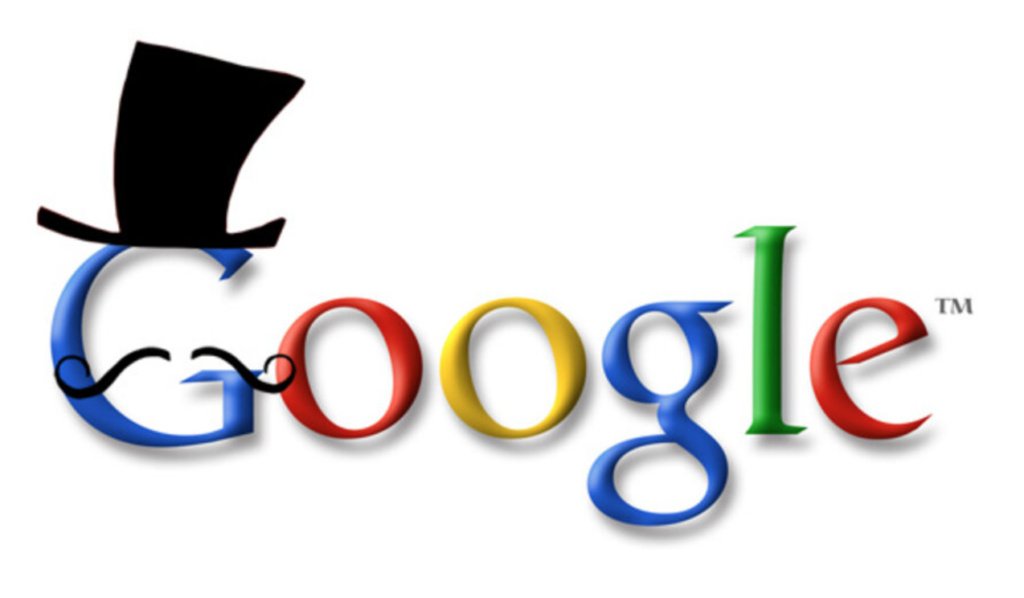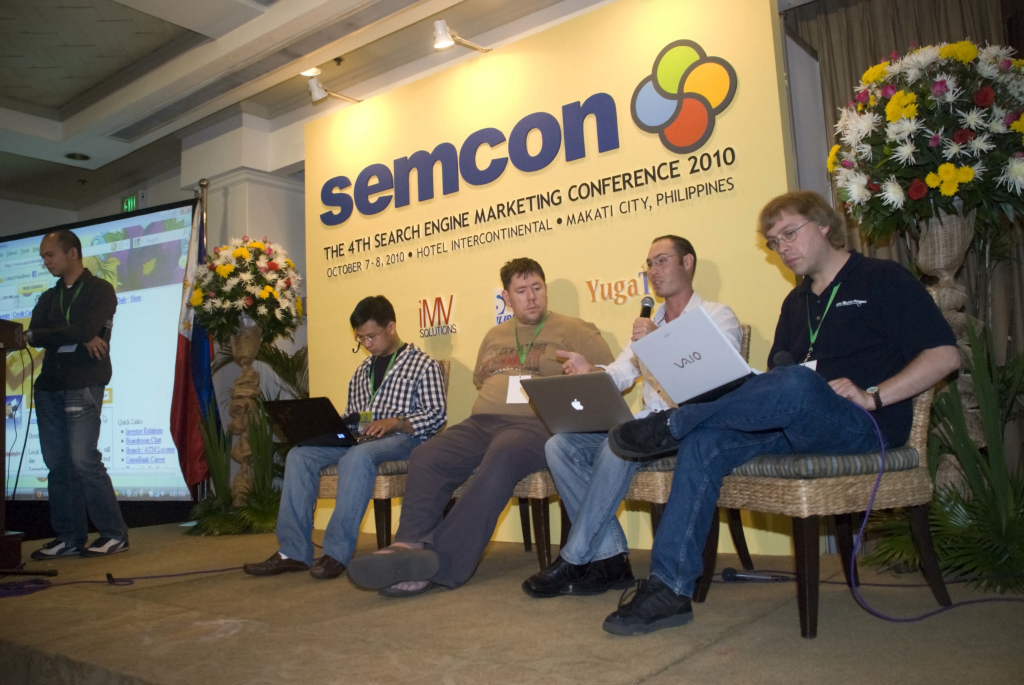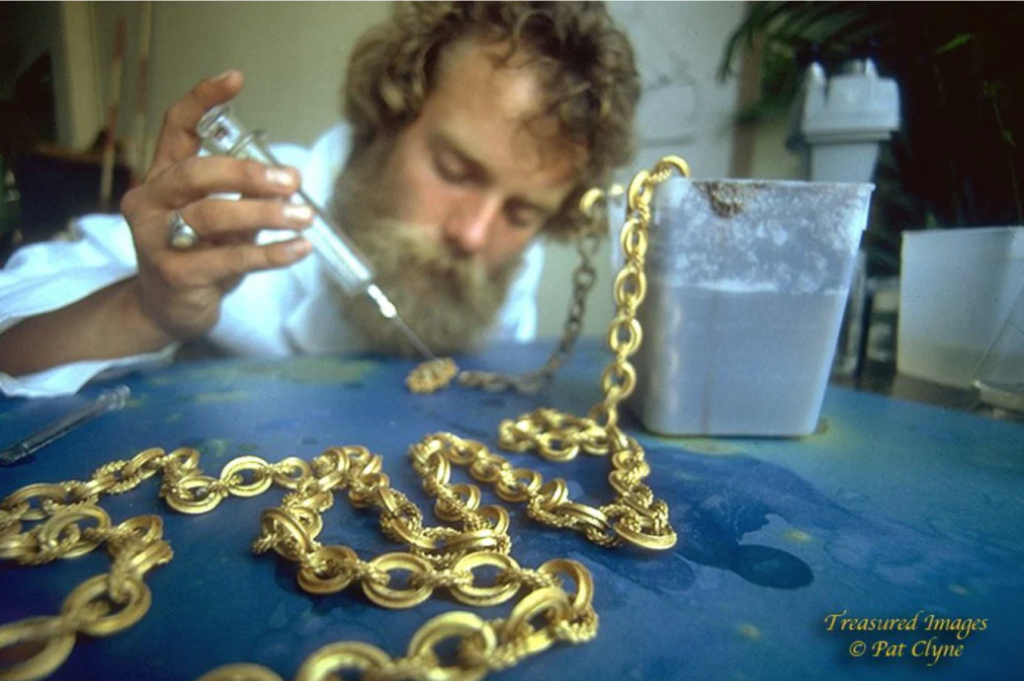If I were to pick four of my hardest lessons learned, in fifteen years of undertaking SEO work, it would certainly be these…
If I could do it all over again, what would I have done differently? That’s a haunting question, particularly when you step back to consider all that’s happened in the SEO industry. Amazingly enough, my first experiences with the Art of SEO occurred in the late 90’s. My friends and I, at the end of our tenure in high school, discovered that we could make web pages show up in Altavista and Lycos for lewd phrases associated with the names of people we didn’t particularly care for – all we had to do was copy and paste that specifically crude phrase dozens of times into page title tags, meta keywords tags, and write a few sentences on a page with a poorly modified image of our “target”. Sure enough – those pages would eventually appear when you searched the phrase – much to the dismay of whoever we found it suitable to harass. We thought it was goddamn hysterical.
It wasn’t until fall of 2006 when I discovered a website called SEOmoz.org, which was effectively the blog for a burgeoning consultancy which helped businesses “optimize” for search. I started obsessively reading the writing of Rand Fishkin, which ultimately led me to find Jim Boykin, Aaron Wall, Michael Gray, AJ Kohn, Bill Slawski, Todd Malicoat, and a myriad of other brilliant minds who were cultivating what would become the foundation of the SEO community. It was in the forums of webmaster world, the pages of Search Engine Land, Search Engine Journal, and SEO Roundtable that I discovered the techniques and principles of acquiring organic traffic at scale. At the time (2007 into 2008), I was building websites that were self-serving, if only to demonstrate that “I could” do this. And then I read the Four Hour Work Week by Tim Ferris – and so began my odyssey into self employment as a marketing consultant.
…and here I am in 2024. I can’t begin to explain the journey which brought me to this era in business, in the context of this post – and it’s not the right time to do so. The reason I tell you this, is because I’ve made enough mistakes in practicing SEO over 15 years to get a few things right. And when I speak to startups, established businesses, and even colleagues who consider me to have “the experience” to navigate through an impossibly competitive market – I tell them the same thing. I learned more from what I did wrong, than what I did right.
If I were to pick four of my hardest lessons learned, in fifteen years of undertaking SEO work, it would certainly be these…
Links Matter – They Always Have, and They Always Will
Many years ago, we relied on a tool called Yahoo Site Explorer to understand how websites were linked together. That was effectively the basis for backlink analysis, which was crucial to understanding how “strong” a website was. There were tools like Majestic SEO, which provided a proprietary link graph (that was massive for its time), but then came SEOMoz’s link scape. That really changed everything. It was the first time the concept of “domain authority” and “page authority” had really entered the mainstream conversation. When the first “ranking factor survey” came out from SEOmoz – that changed everything. The brightest and sharpest minds in the SEO game knew all too well how important links were – and there was no shortage of link acquisition strategies that could drive you to the first page, whatever your keyword was. Once SEOmoz made it easy to understand – the link game became very competitive…and expensive. The link buying industry was thriving at the time – there were a variety of “vendors” who could provide you with links at $200 to $1000 a piece, which could propel you upwards (if you bought a dozen or more, depending on your industry). The value of exact match anchor text became front and center – and it wasn’t long before Google really cracked down on this. I’m sure you’ve heard of the notorious link spam update – Penguin. That was absolutely Google striking back against the SEO community – and in all fairness (and hindsight) link building had gone bonkers. There were several major updates that followed (and that’s a story for another day) which pummeled the efficacy of the products link buyers could sell…but nevertheless – the value of links remained paramount. The bottom line is that Google built itself on the link graph of the internet. It’s how pages are discovered and indexed to this day. And that’s not going to change, even in the era of AI.
The takeaway I want to convey here is that links matter. They matter more than you realize. They will always have a profound impact on your website’s ability to rank in organic search. Without a potent backlink profile – your website (no matter its category) will not perform in organic search results. And in full consideration that organic traffic has plateaued, I want to reiterate that your ability to build a backlink profile will make or break your business, if organic traffic is critical to new business acquisition. I am a major proponent of hybrid strategies (SEO/SEM) in this current era of the internet – but – there is hardly anything more impactful in the context of SEO than link building. While it can be a product of effective content marketing, link building should remain a top priority if organic traffic is valuable to you. And if organic traffic isn’t valuable to you – please let me know. Because I haven’t met too many thriving ecommerce or lead generation based businesses who don’t rely on it.
Google Does What’s Best for Google

This is a cold. Hard. Fact. I’m old enough to remember Google’s IPO (I miss you 2004), and as I consider how ubiquitous Google has become in our lives…it’s staggering. I rely on Google’s products to run my business. I rely on Google Search, Gmail, Maps, Marketing Platform, and probably 15 other products I can’t recall at the moment. Google Bard blows my mind on a daily basis. And I hate to say it – I am extremely reliant on Google for many critical aspects of my life. So are hundreds of millions of other people. And that’s a scary thought.
When it comes to how search works, and how ad products are factored into Google’s “ecosystem”, the reality is that an army of the most brilliant, competitive, and forward thinking minds on the planet are responsible for creating these resources. While I consider it inarguable that Google’s technologies will continue to evolve and deliver products that enrich our lives (and make them more convenient), there is another reality to the nature of what they do. Google is one of the wealthiest companies in the history of humanity. Take some time to see just how much money they’ve earned the past few years by reading Alphabet’s public statements…then step back, take a deep breath, and realize all of that revenue (well, almost all of it) is driven by advertising products. We’re talking billions upon billions of dollars. And as a professional who has utilized the Google Ads platform (I still slip and call it Google Adwords on occasion) since 2007 – let me tell you – Google has shifted their search results in favor of advertising products. Why wouldn’t they? It’s a money mint that is nearly eternal. Ads are so integrated into search that you can hardly tell them apart from organic results any more – and do consumers care? Not really. The overwhelming majority of people who use search don’t care if they’re clicking an ad – they care if they get to the information, products, or services they want as swiftly as possible. That’s reality. And it’s not going to change. You had better believe that Google will do what’s best for Google – and that means creating products that serve users effectively (creating dependency) and are integrated with ads. The more you click, the more they make. And why wouldn’t they take advantage of that? Google does what’s best for Google – particularly when it comes to “encouraging” businesses to invest in ad products, rather than make it easy to get organic traffic, which you don’t have to pay for.
Everything Always Becomes More Difficult as Time Goes On

This is true in every aspect of life, and it has always been this way. If you haven’t read Marcus Aurelius Meditations – you should. It’s hard to argue with a former Roman Emperor, who understands more about people than we ever could, particularly in the age of inherently digitally integrated living. I can’t recall off the top of my head which book it was, within Meditations, but there was a passage that goes something like this:
“Everything has always been the same, and keeps recurring, and it makes no difference whether you see the same things recur in a hundred years or two hundred, or in an infinite period… that the longest-lived and those who will die soonest lose the same thing. The present is all that they can give up, since that is all you have, and what you do not have you cannot lose.”
Truth.
What does that have to do with SEO? Effectively this – there are principles of understanding how your target audience uses language to find information, products, services, or places that will always be the same. At the foundation of it all – optimizing for search starts with understanding language and intent. That is the foundation of search – relevance and authority. I’ve heard the argument that building websites is “easier than ever.” I disagree. I profoundly disagree. Building shitty websites is easier than ever before. But when it comes to building an expansive information architecture, compelling user experience, and an immersive, compelling, and insightful content hierarchy that thrills your audience – that shit is harder than ever. And it’s only going to become more difficult as time goes on.
SEO is more difficult than ever before, because there are more people doing it. Google is smarter about the type of content it deems “relevant” and “trustworthy”. You have to create a resource that is so profoundly useful, practical, and aligned with Google’s standards for mobile experience, speed, and UX – it’s a massive undertaking. You have to anticipate that when you undertake an SEO project – or any marketing project for that matter – everything will become more difficult as time goes on. That’s a law of life – embrace it. Take it up with Marcus Aurelius if you truly disagree.
Do Not Underestimate the Value of Building Your Team

This was my biggest mistake early on in business and life. I have always been somewhat of a rogue. A ronin. I take it upon myself to lead by example, to chart a course, and get there of my own accord. That’s a trait which has served me well these past forty years – at sea, in the boardroom, in times of hardship, and times of triumph. But I realize after 15 years in SEO that I could never, ever have arrived to this current era without an array of people who have provided resources, expertise, support, and strategy. If you plan on building a website – you need a team. If you plan on running a business – you need a team. If you plan on navigating a ship across the Caribbean sea – you should really consider doing that with a team (solo open ocean voyages are…sketchy). Believe me.
Most people think of me as a solo practitioner – but that’s far from the truth. I may be the Captain of this enterprise, but there is simply no way I could have built all of this without a capable, reliable, resourceful, and dependable team. One of the biggest mistakes I made in building Gallant Fish LLC was that I tried to do too much on my own in the first few years. I don’t regret it, because it certainly built my “chops” for entrepreneurship – but at the same time – I could have done so much more. Delegation was always one of my strong suits and it has certainly become the cornerstone of effective leadership, in my eyes.
I could never have achieved 15 years of self-employment had I not built a team. When I think about the critical roles in the world of SEO, Marketing, or general digital entrepreneurship, it’s effectively this:
- Strategist – one who is able to “chart a course” forward based on data
- Analyst – one who is able to interpret data and make decisions based on their findings
- Developer – one who is able to sling code like a goddamn boss and make shit happen
- Designer – one who is able to leverage artistic ability to create amazingly beautiful media
- Writer – one who is able to create written content tactfully and efficiently
- Manager – one who is able to maintain organization, discipline, and accountability
- Accountant – one who is able to meticulously record, document, and report on finances
- Photographer / Videographer – one who is able to produce imagery and video content
- Negotiator – one who is able to tactfully coerce, manipulate, persuade, convince others
- Friend – one who is loyal to a fault and will always tell you like it is
I implore you – do not underestimate the value of building a team. In whatever professional endeavor you encounter. Your crew should be everything to you, and though it may grow or consolidate with time – it will be what makes or breaks your success as you push towards the horizon. An effective team should be able to collaborate, resolve conflict respectfully, achieve a common goal, and above all else – contribute their strengths in a meaningful way. A team is in it together, and a team is stronger (and wiser) than one many could ever be. I made the mistake of allowing my self-determination to cloud my judgment – believing I had to do everything on my own, so if anything went wrong, it was by my own hand. That was foolish. I encourage you not to make the same mistake – in business and in life. Do not underestimate the value of building a team.









